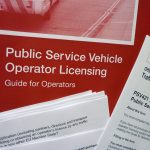Last month I rehearsed the problems that can be caused by knee-jerk policy announcements. The civil service often refers to these as ‘unintended consequences’. Sometimes they result in the legislation having the exact opposite effect of its original purpose.
Unintended consequences can occur for a variety of reasons, but are less likely to happen if something is properly thought through. That is why parliamentary scrutiny involving detailed consideration in both Houses is quite rightly so laborious.
Many will be ask what on earth MPs and Peers know about the subjects on which they are asked to legislate. In most instances the answer is very little. They may have a political vision which they apply to all policies and a ‘general direction of travel’ they wish a policy to take, but in the main they have no detailed subject knowledge.
That said, the House of Lords has many experts in many fields, and some MPs have specific areas of interest. But this is not the general rule, so this is where we and many like us, come in.
We must brief our Parliamentary representatives to speak on our behalf. In many cases, industry bodies pay Peers and MPs to speak for them. Very often this is portrayed in the media as sleaze and those with the chequebooks getting the loudest voice. I do not adhere to this view.
If payments are received, they must be detailed in the Register of Members’ Interests. Parliamentarians also have to declare that interest before they speak and, in my experience, will not say something with which they disagree just because they are being paid to say it.
Most who speak in debates are not paid but are speaking up for the industries or constituents who lobbied them and persuaded them that their arguments were valid. This was true of the members of both Houses who, without being paid a penny, put forward the industry view during the debates on the Bus Services Bill.
I know people still have concerns over the whole lobbying process but in my view I believe that a lobbied legislature is a better informed one.
Which is why we must go into bat – we are already well into the innings – on the clean air debate at national and local level. I am concerned that, if not properly executed, this policy has the potential to end up with fewer coaches and buses on the road, increasing the need for car travel. Definitely not the intended consequence.
There has already been considerable discussion about the role of buses in this debate. But what about coaches? And I am not just talking about London.
This could be a classic example of a policy not being thought through. Do we really want coaches that do not reach the strict clean air requirements of particular towns and cities being unable to operate, just because lawmakers do not understand the markets they serve and the anti-congestion role they perform?
We know the answer. Now we must educate those who make the decisions.


























